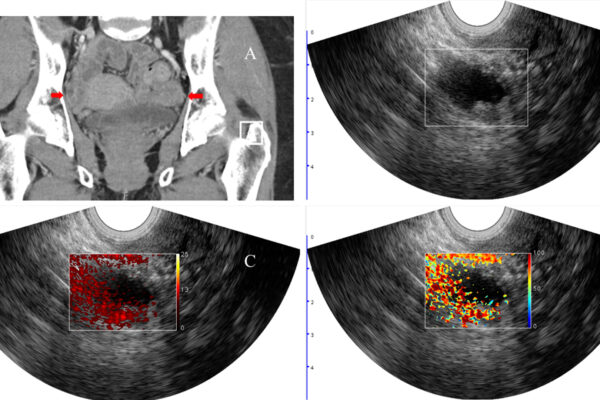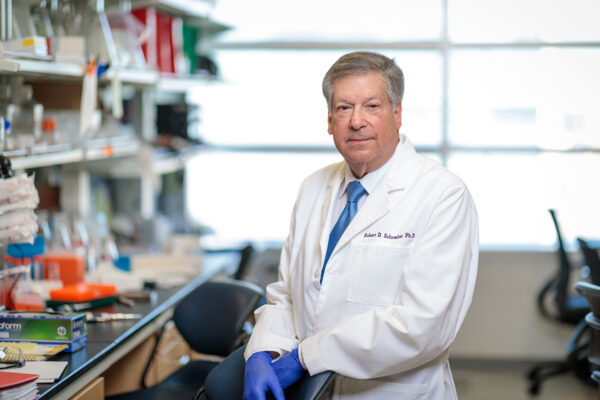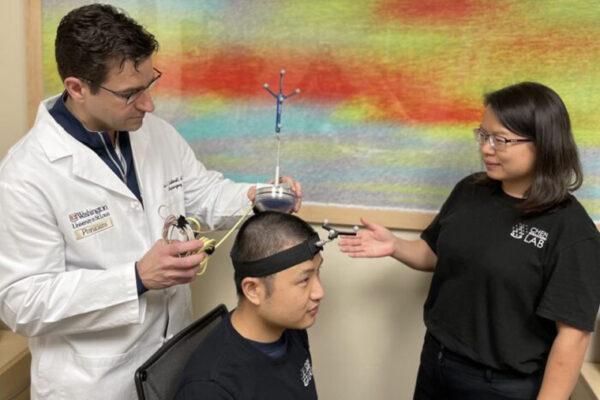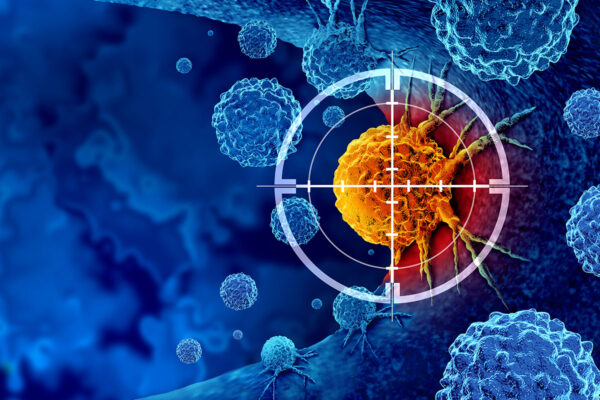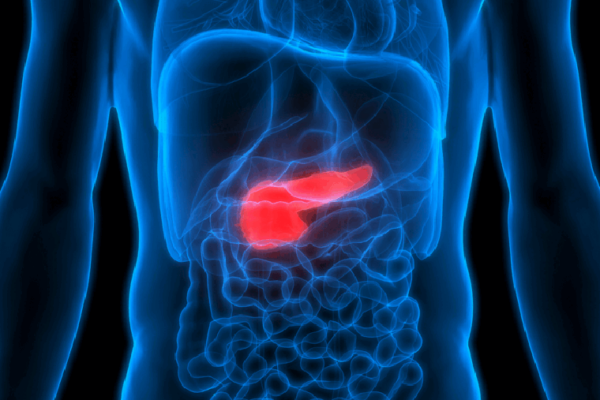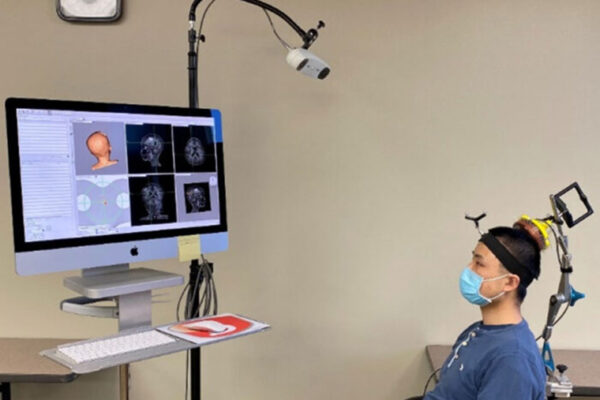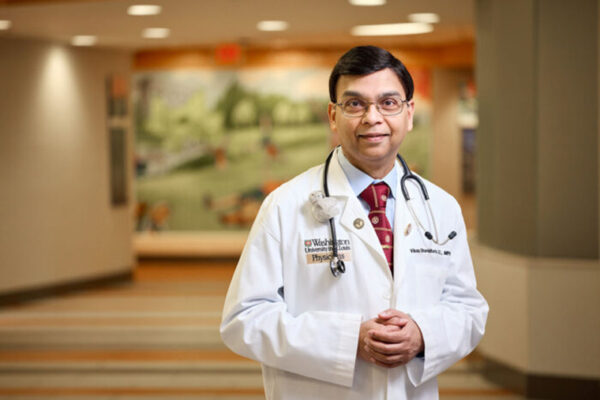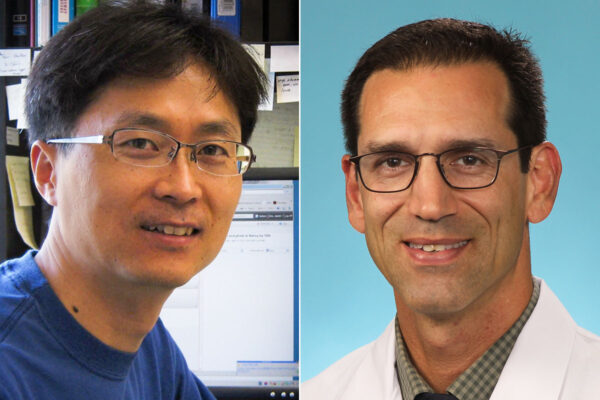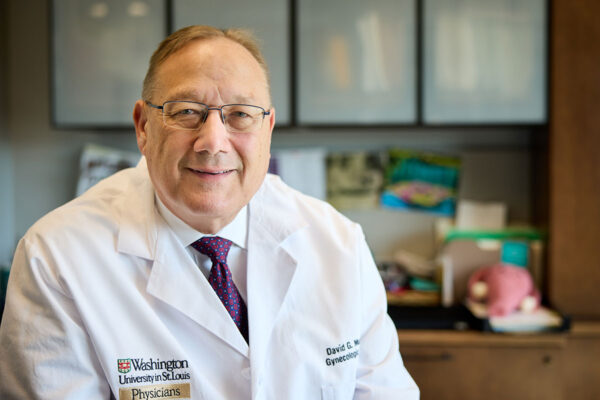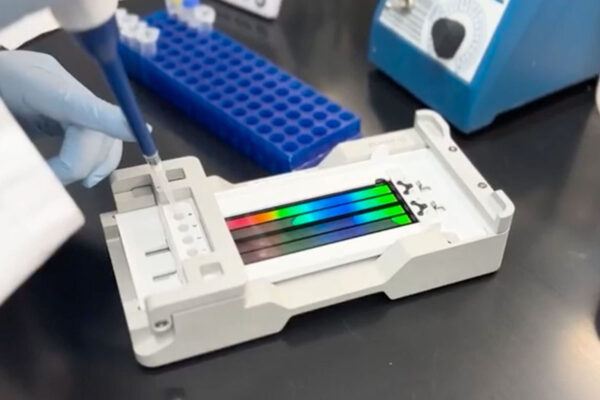Photoacoustic imaging improves diagnostic accuracy of cancerous ovarian lesions
Researchers and clinicians at Washington University in St. Louis developed a new imaging method to better diagnose lesions in the ovaries and fallopian tubes that may help to avoid unnecessary surgeries.
Schreiber receives scientific innovator award
Robert Schreiber, of Washington University School of Medicine in St. Louis, is the 2024 Senior Scientist Winner of the Innovators in Science Award. The award recognizes his outstanding contributions to the field of cancer immunology.
Device for noninvasive brain biopsies via blood draw moves closer to market approval
A device aimed at enabling physicians to perform noninvasive blood-based biopsies in adults with brain tumors has received Food and Drug Administration “Breakthrough Device” designation. The device includes Washington University technology.
Epigenome’s role in cancer revealed in new study
Scientists at the School of Medicine have analyzed the epigenomes of tumor cells across 11 cancer types and revealed important roles for this regulatory system of the genome in the way cancer forms, grows and spreads.
Pancreatic cancer research, clinical trials supported with $10.9 million NCI grant
Researchers at the School of Medicine have received a prestigious grant from the National Cancer Institute of the National Institutes of Health (NIH) to support research and clinical trials aimed at improving therapies for pancreatic cancer.
Noninvasive, ultrasound-based brain biopsy is feasible, safe in people
Researchers at the School of Medicine and the McKelvey School of Engineering have developed a noninvasive technique called sonobiopsy that uses ultrasound and microbubbles to release biomolecules from brain tumors. A blood draw can collect the biomolecules to help inform treatment decisions.
$5 million for research on immune responses to cancer-causing virus in immunocompromised kids
Researchers at the School of Medicine have received a $5.7 million grant from the National Cancer Institute of the National Institutes of Health (NIH) to investigate immune responses to a cancer-causing virus after organ transplantation in children.
Choi, Pachynski receive research scholar awards
Jaebok Choi, PhD, and Russell Pachynski, MD, both of the School of Medicine, have received Research Scholar Grants from the American Cancer Society to support their research in oncology. Both investigators are research members of Siteman Cancer Center at Barnes-Jewish Hospital and the School of Medicine.
$11.6 million grant supports innovative research in endometrial cancer
Led by principal investigator David Mutch, MD, researchers at the School of Medicine have received a prestigious Specialized Programs of Research Excellence (SPORE) grant in endometrial cancer from the National Cancer Institute of the National Institutes of Health (NIH).
Medicare approves WashU Medicine’s whole-genome test for blood cancers
A new test for two blood cancers — developed by a team at the School of Medicine — is the first whole-genome sequencing test for cancer to be approved for reimbursement by the Centers for Medicare & Medicaid Services.
Older Stories
